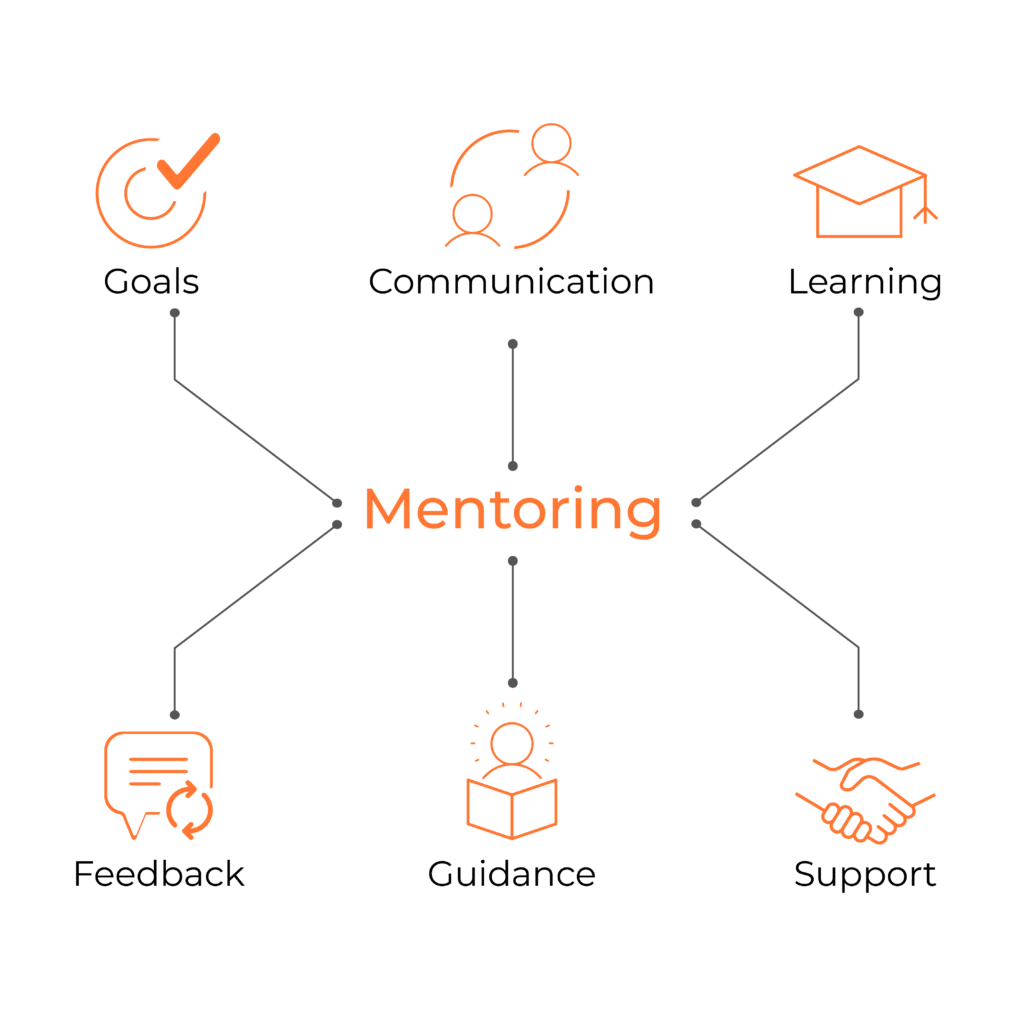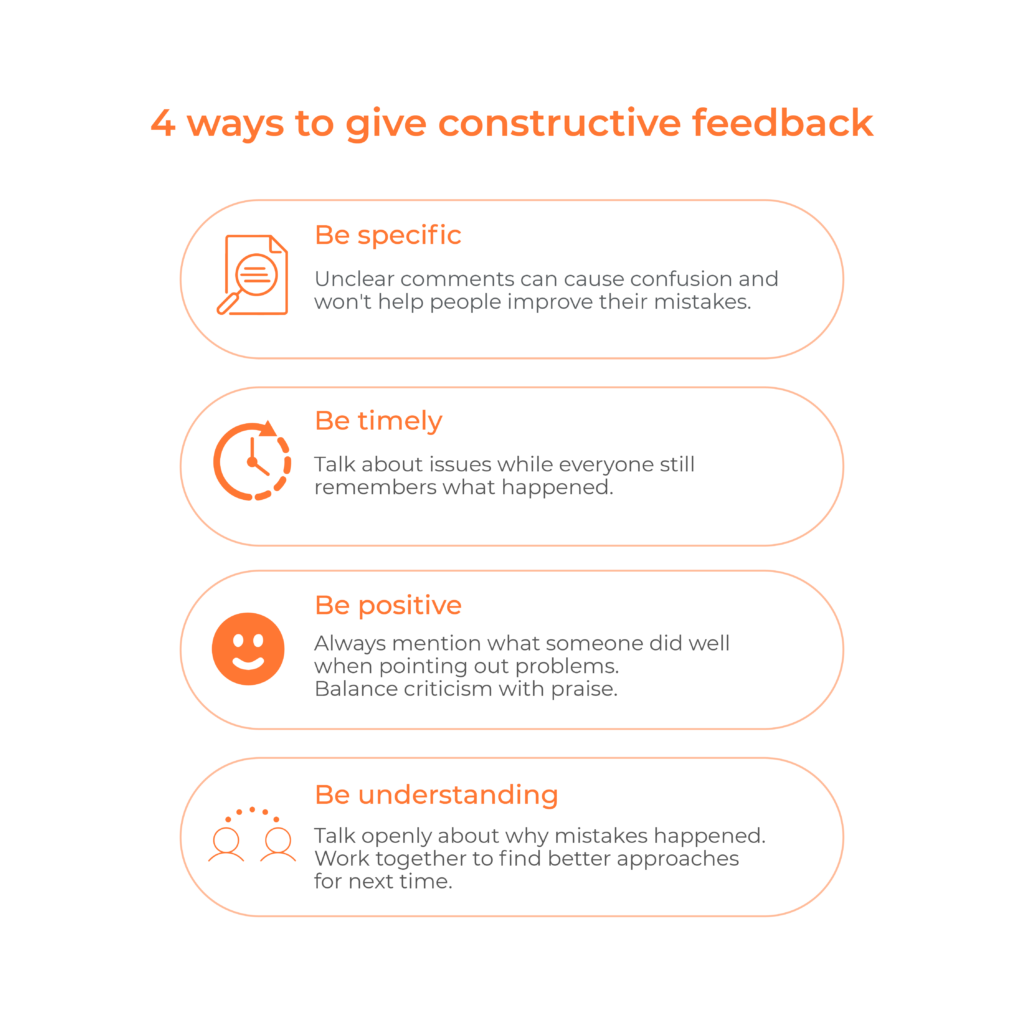Mentorship can be either formal or informal. Formal mentorship takes place within a structured mentoring program inside an IT organization. Informal mentoring is a bit more organic. It’s the relationship you build with a junior colleague over coffee breaks, where you find yourself sharing advice, guiding them through problems or lending an empathetic ear. There’s no handbook here, just two people growing together.
Here are six tips to build these relationships:

1. Expectations and goals
Establishing clear expectations and goals from the beginning is crucial. Both the mentor and mentee should agree on what they aim to achieve through the mentorship. This could include specific technical skills, career guidance, or personal development objectives. Clear goals help in measuring progress and ensuring that both parties are aligned in their efforts. While goals are essential, they aren’t marked in stone. Goals are guiding principles that can and should evolve with time.
2. Open communication
Open, honest communication is the cornerstone of any effective mentorship relationship. Encourage regular check-ins and discussions about progress, challenges, and feedback. This transparency helps build trust and ensures that issues are addressed promptly. Using communication tools like Slack, email, or regular meetings can help maintain this open line of communication.
3. Mutual learning
Mentorship should be a two-way street. While the mentor provides guidance and knowledge, they should also be open to learning from the mentee. This mutual exchange of ideas can lead to innovative solutions and foster a collaborative learning environment.
Mentee can be an auditory learner who picks things up better on podcasts and discussions. Or maybe they prefer visually working through problems on a whiteboard. Maybe reading code on GitHub is their way to learn new things. Mentors need to tailor their style to suit mentees. Recognizing and valuing each other’s perspectives can enrich the mentorship experience.
4. Constructive feedback
Constructive feedback is essential for growth. Mentors should provide actionable insights and guidance that can help mentees improve their skills and performance. This feedback should be specific, balanced, and focused on development rather than criticism.

Regular feedback sessions can help mentees stay on track and make meaningful progress. Giving constructive feedback with empathy and non-violent communication is the perfect way of communication to approach mentees.
Another approach for giving quality feedback is called radical candor. Radical Candor really just means saying what you think while also giving a damn about the person you’re saying it to. Check these two approaches for learning more ways of giving constructive feedback.
5. Career guidance
Effective mentorship in software engineering often involves guidance on career development. Mentors should assist mentees in setting career goals, identifying opportunities for advancement, and navigating career transitions. This support can include advice on skill development, networking, and navigating organizational politics.
Navigating one’s career in software engineering can be very difficult. Especially given the range of IT specializations and career paths available. Mentors can provide invaluable advice on career decisions, from choosing a specialization, understanding industry trends, negotiating job offers, or even deciding when to seek new opportunities.
6. Supportive relationship
Mentorship should go beyond professional guidance to include emotional and psychological support. Building a supportive relationship where the mentee feels comfortable discussing their challenges and aspirations can lead to a more impactful mentorship.
Mentors should be empathetic, patient, and approachable to create a nurturing environment. Help mentees come up with multiple solutions to their problems and help them articulate the tradeoffs themselves. Mentors should explain concepts over solutions and help mentees understand that there are rarely black or white answers. There is no one pattern for mentorship.
Conclusion
For most people, mentoring is a mix of informal mentorship and regular catch-ups. Some people prefer in-person mentoring, and some mentorships don’t go beyond reviewing code. By implementing these 6 tips, both mentors and mentees can create a productive and enriching mentorship relationship. The one that supports personal and professional growth within the field of software engineering. Feel free to contact me via a form if you have more insight on mentorship relationships.
FAQ
What are the key qualities to look for in a mentor for software engineering?
Look for mentors who have a strong technical background, excellent communication skills, and the ability to provide constructive feedback. They should also be approachable, empathetic, and committed to supporting your career development.
How often should mentors and mentees meet to ensure an effective mentorship relationship?
The frequency of meetings can vary based on the needs and availability of both parties. However, regular check-ins, such as bi-weekly or monthly meetings, are recommended to maintain consistent communication and track progress effectively.
How can a mentorship program benefit the overall organization in the software engineering field?
Mentorship programs can enhance employee engagement, build a culture of continuous learning, and improve retention rates. They help bridge the skills gap, promote knowledge sharing, and develop future leaders within the organization.
Chapters
- 1. Expectations and goals
- 2. Open communication
- 3. Mutual learning
- 4. Constructive feedback
- 5. Career guidance
- 6. Supportive relationship
- Conclusion
- FAQ



